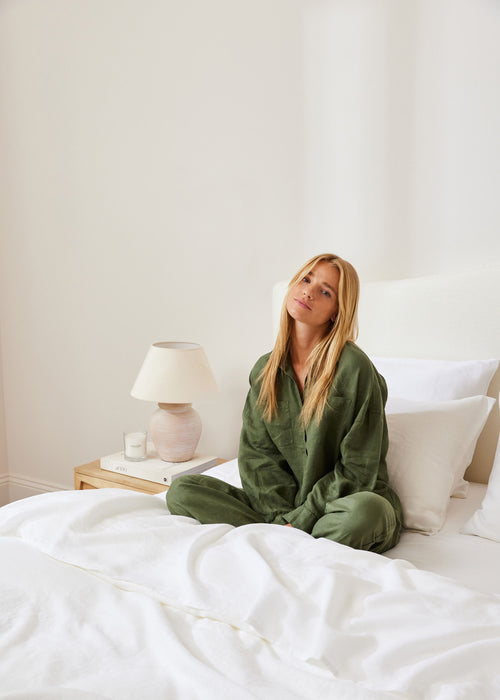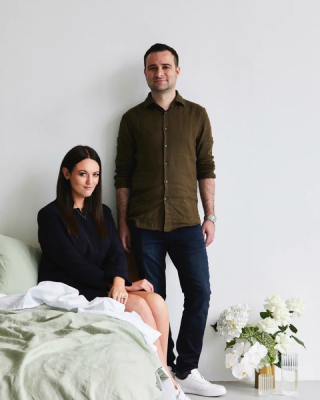
These seven things will help reset your body clock.
How to Quickly Adjust to Daylight Savings Time
These seven things will help reset your body clock.
Daylight savings can be disorienting. The sun is sadly setting earlier than it did just a week ago, and you're struggling to wake up and fall asleep at your usual times. While some of us naturally fall into the swing of the hour difference, it's more difficult for others, taking weeks to get used to.
This coming daylight savings, the clock is going back an hour, and while this may seem insignificant, changing the time, even by 60 minutes can disrupt our body clocks. That initial extra hour in bed can throw a real spanner in the works and end up making us feel more tired!
For those of you who are prone to struggling with the time change, we've compiled a list of ways to help you quickly get into the rhythm. A well-rested body can find it easier to adapt!
1. Get ahead
Rather than being hit with the one-hour difference immediately, slowly adjust your bedtime in the nights leading up to daylight savings in 15-30 minute increments earlier than you would typically sleep. The timing of other daily activities, such as waking up meals and exercise, can also be gradually adjusted backward.
2. Avoid naps
It might be tempting when the sun goes down earlier, you're feeling sad that summer is over, and it's getting cold, that it's easy to just sneak in a little nap. Or, you might find that as a result of daylight savings, you are more tired and therefore want to nap. Unless it's an absolute necessity, it's best to avoid these naps as it will just further confuse your body's circadian rhythm. If you must nap, the Mayo Clinic suggests doing so in the early afternoon and keeping it to 10-20 minutes to avoid feeling groggy.
3. Get morning light ASAP
One of the most effective tricks to adjusting to daylight savings is getting enough exposure to sunlight. The body's 24-hour cycle – its circadian rhythm – is guided by light. This means that light impacts behaviours such as sleep and wakefulness. The days being shorter will naturally effect this.
When you get morning sunlight, specialised cells in your retinas tell your brain to stop making the sleep hormone melatonin. Light will even pass through your eyelids when you’re asleep and signal the circadian pacemaker.
Research has found that light powerfully affects melatonin production. Melatonin production occurs sooner when people are exposed to sunlight or very bright artificial light in the morning, allowing them to enter into sleep more easily at night. The days are shorter in winter so take advantage of the daylight hours where you can!
4. Exercise and eat well
If you're prone to a lower mood when daylight savings kicks in exercising outdoors can help combat seasonal affective disorder and can improve sleep.
You may also feel tempted to reach for more takeaway and unhealthy foods as the sun sets earlier and the weather cools. Healthy eating and hydration are paramount to good sleep, and can help support your body's adjustment to the time change. Dietitians Chloe Mcleod and Jessica Spendlove say that poor sleep has been linked with increased intake of high GI carbohydrate foods (think the less healthy carbohydrate foods such as desserts), and an increased appetite due to the fall of leptin levels, our appetite-regulating hormone.
5. Don't drink
Cut the alcohol while you reset. Drinking might help you fall asleep, but you won't sleep well. Plus, you'll probably wake up feeling extra groggy and craving foods that aren't optimal for healthy sleep.
6. Practice good sleep hygiene
If you're struggling with the time change, it might be worth assessing your sleep hygiene. Is your bedroom tidy? Do you eat or work in bed? Do you have a nighttime ritual? Do you drink caffeine late in the afternoon? All of these factors can impact whether you sleep well or not and ultimately how quickly you adjust to the time difference.
Creating a nice wind-down routine for yourself in a clean space that you can do half an hour to an hour each evening can help tell your brain it's time to get ready for bed. According to the Sleep Foundation, implementing a bedtime routine "can provide a foundation for sufficient rest." This could mean turning off screens and reading a book, meditating, or doing your skincare routine. "By incorporating sleep hygiene tips into your daily regimen, you can prime your body and mind for restful sleep," explains the Sleep Foundation.
7. Treat yourself to nice bedding
Improving your sleeping patterns during daylight savings can only be made easier with the right bedding! Everything from linen bedding to the pillows you use can have an impact on your sleep, so ensure these are fresh, comfortable, and working for you not against you.

























